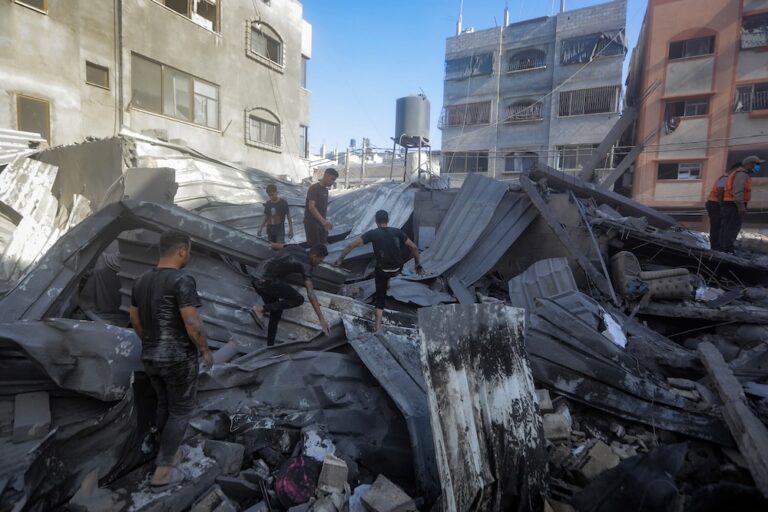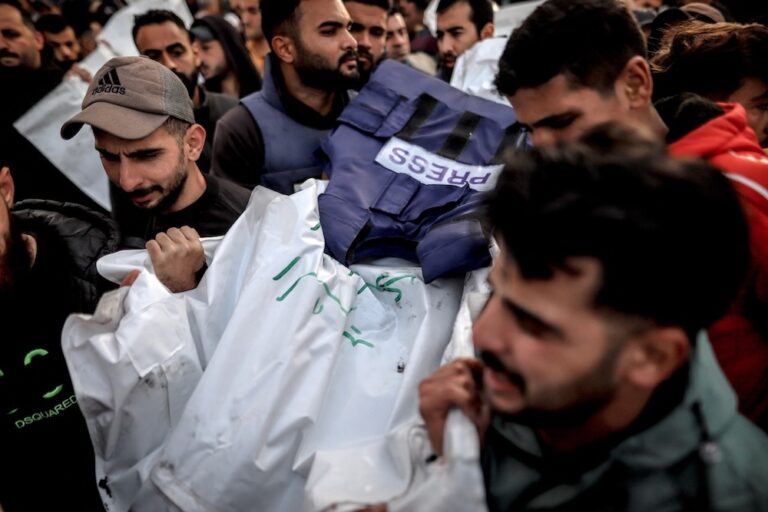(RSF/IFEX) – On 20 August 2007, Reporters Without Borders called for the immediate release of Ata Farahat, the correspondent of Syrian public television and the daily newspaper “Al-Watan” in the Golan Heights, who was arrested on 30 July and is currently held in Al-Jalama prison (14 km southeast of Haifa). His lawyers and the press […]
(RSF/IFEX) – On 20 August 2007, Reporters Without Borders called for the immediate release of Ata Farahat, the correspondent of Syrian public television and the daily newspaper “Al-Watan” in the Golan Heights, who was arrested on 30 July and is currently held in Al-Jalama prison (14 km southeast of Haifa). His lawyers and the press have been banned from talking about the case. The Golan Heights were annexed by Israel in 1981.
“The Israeli authorities have so far given no explanation for the arrest of this journalist, who still does not know what he is charged with,” the press freedom organisation said. “Has Farahat been arrested simply because he works for Syrian news organisations? This possibility cannot be ruled out for the time being.”
Reporters Without Borders added: “There can, furthermore, be no grounds for the order issued by the judicial authorities forbidding Farahat’s lawyers and the Israeli media from referring to the case. We call on the judges to lift this act of censorship.”
Members of the Yassam special forces burst into Farahat’s home in Buqata (in the north of the Golan Heights) at around 3 a.m.(local time) on 30 July, carried out a search and then took him away. He has been brought three times before a Tel Aviv judge, who each time renewed a provisional detention order.
When Reporters Without Borders reached one of Farahat’s lawyers, Majd Abou Saleh, he said he could say nothing about the case for fear of violating the court’s orders.
Israel Press Council secretary-general Avi Weinberg told Reporters Without Borders the Israeli courts were issuing this kind of order with increasing frequency. “As official military censorship is not very effective, the courts are nowadays being used to restrict the work of journalists. Requests by prosecutors or the security forces for restrictions on the coverage of certain cases are too readily granted by judges.” The media have been able to get such bans lifted in the past.
Farahat is due to appear in court again on 22 August.


